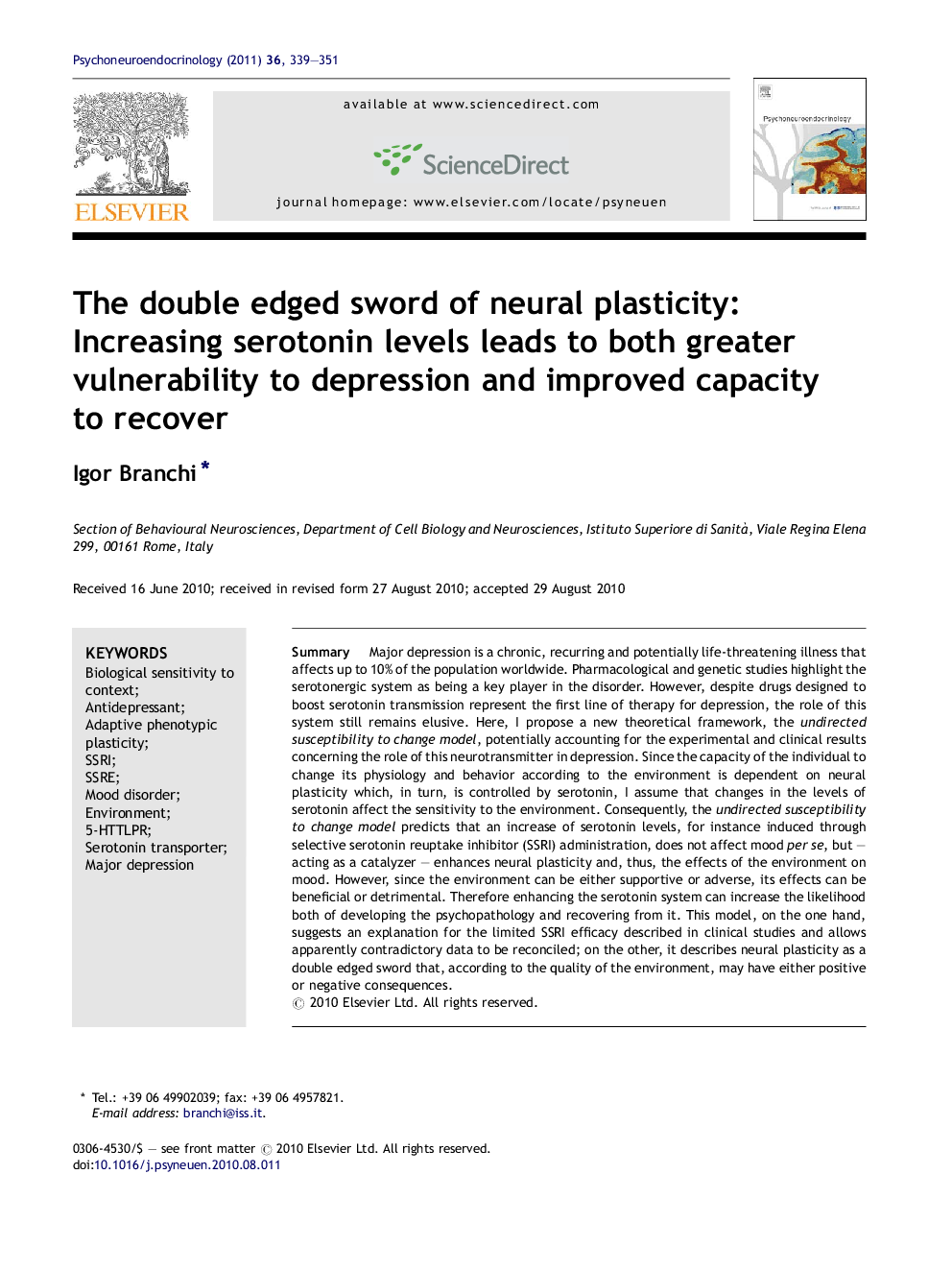| کد مقاله | کد نشریه | سال انتشار | مقاله انگلیسی | نسخه تمام متن |
|---|---|---|---|---|
| 335941 | 547058 | 2011 | 13 صفحه PDF | دانلود رایگان |

SummaryMajor depression is a chronic, recurring and potentially life-threatening illness that affects up to 10% of the population worldwide. Pharmacological and genetic studies highlight the serotonergic system as being a key player in the disorder. However, despite drugs designed to boost serotonin transmission represent the first line of therapy for depression, the role of this system still remains elusive. Here, I propose a new theoretical framework, the undirected susceptibility to change model, potentially accounting for the experimental and clinical results concerning the role of this neurotransmitter in depression. Since the capacity of the individual to change its physiology and behavior according to the environment is dependent on neural plasticity which, in turn, is controlled by serotonin, I assume that changes in the levels of serotonin affect the sensitivity to the environment. Consequently, the undirected susceptibility to change model predicts that an increase of serotonin levels, for instance induced through selective serotonin reuptake inhibitor (SSRI) administration, does not affect mood per se, but – acting as a catalyzer – enhances neural plasticity and, thus, the effects of the environment on mood. However, since the environment can be either supportive or adverse, its effects can be beneficial or detrimental. Therefore enhancing the serotonin system can increase the likelihood both of developing the psychopathology and recovering from it. This model, on the one hand, suggests an explanation for the limited SSRI efficacy described in clinical studies and allows apparently contradictory data to be reconciled; on the other, it describes neural plasticity as a double edged sword that, according to the quality of the environment, may have either positive or negative consequences.
Journal: Psychoneuroendocrinology - Volume 36, Issue 3, April 2011, Pages 339–351